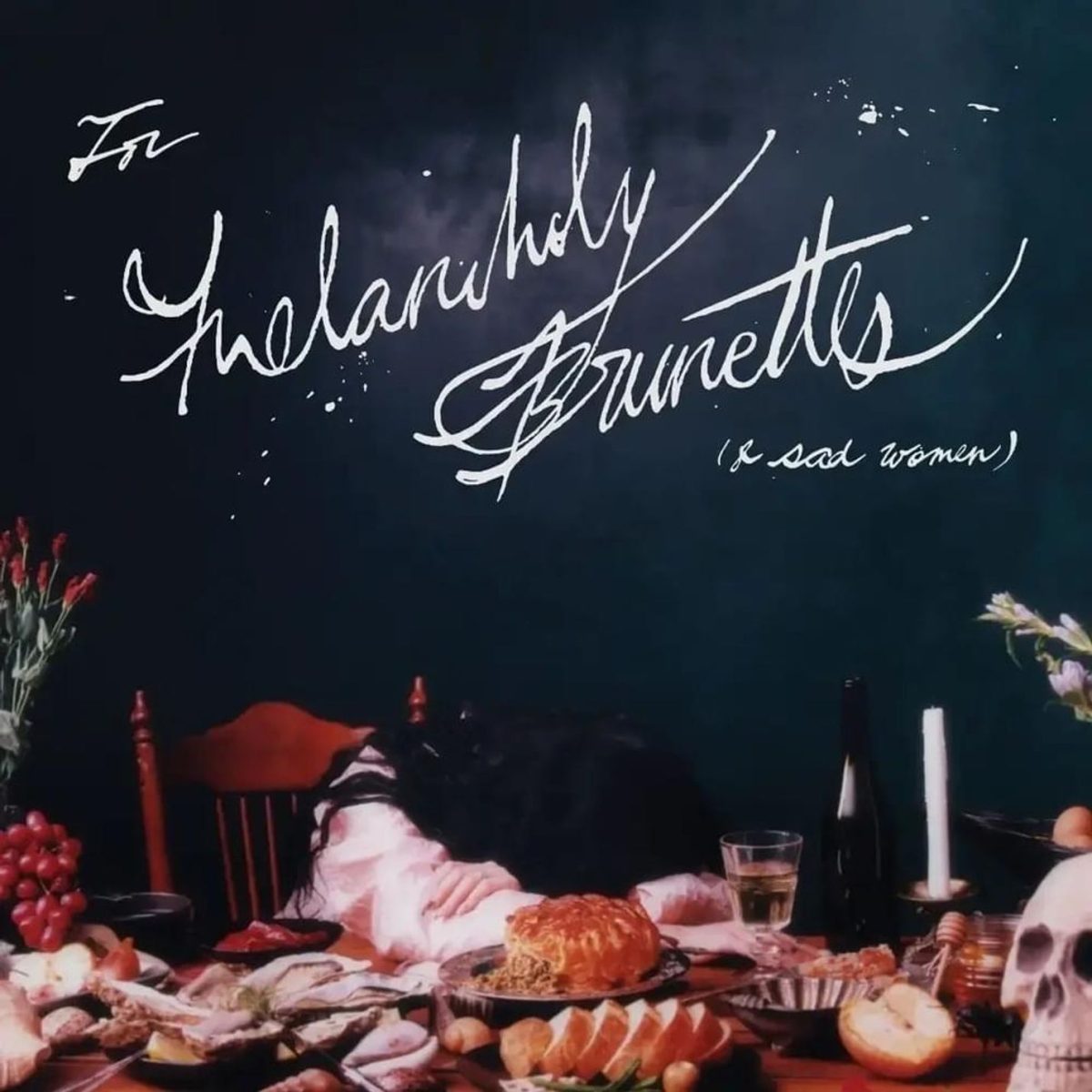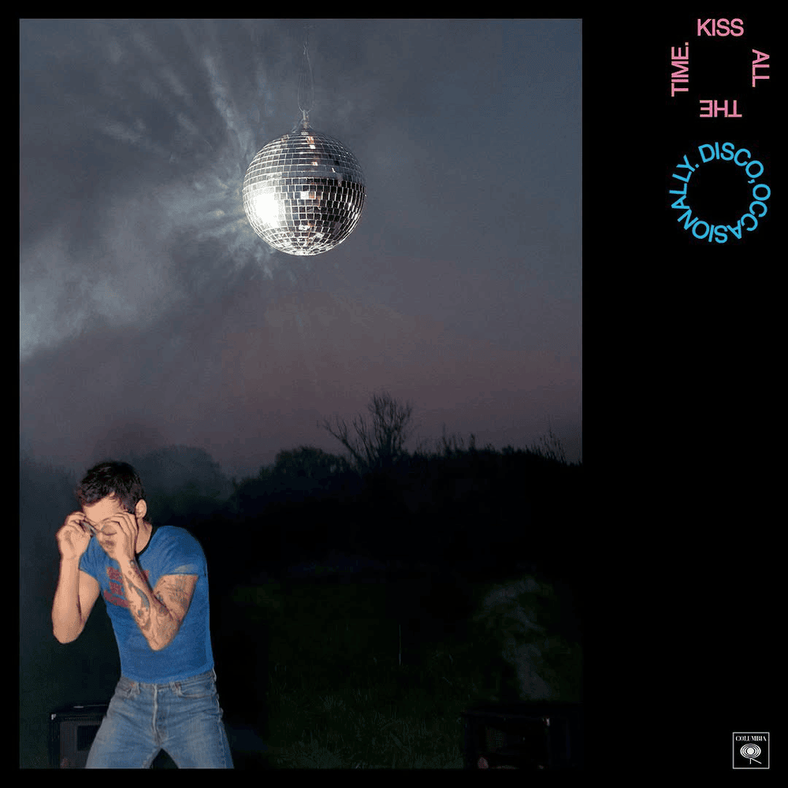Rating: 9/10
Indie-pop band Japanese Breakfast returned to music with their highly anticipated fourth studio album, “For Melancholy Brunettes (& sad women).” Following the immense success of their Grammy-nominated 2021 album, “Jubilee,” this album diverts from the rich-sounding, grand production their previous album was revered for.
“For Melancholy Brunettes (& sad women)” is poetic and rustic in sound. Frontwoman Michelle Zauner’s songwriting shines with references to Greek mythology, as well as her own well-developed characters. The combination hones in on the melancholic theme of this album.
The album opens with ‘Here is Someone,’ where a harp’s quiet strings accompany reminiscent lyrics. There is a longing for simpler times, which Zauner can attest to after seeing an overwhelming amount of success following her third album.
Get The Daily Illini in your inbox!
In an interview with Vulture, Zauner described the humble beginnings of her musical career and its rapid change since “Jubilee.”
“I felt like I was sitting at a poker table and I was just winning hand after hand, and I was just so afraid of losing the entire time,” Zauner said.
Zauner’s clever lyricism takes shape in “Orlando in Love.” In it, she pays homage to an epic poem by Matteo Maria Boiardo called “Orlando Innamorato.” Rhythmic guitar strums ride atop the waves of a large orchestra, which accentuates this reference. Zauner brings life to the character of a naive man who is seduced by a siren.
“Honey Water” is an early highlight of the record. Opening with a heavy drumbeat and dissonant guitar chords, it feels like a homespun country track. Zauner’s light, feminine voice sings of a woman who questions her lover’s faithfulness and the toll it takes on her.
“They say only love can change a man/ But all that changes is me,” she sings.
Throughout the song, Zauner likens her lover’s desire for another to that of ants to sweet honey water. She accepts that her lover’s pitfalls come in the form of lust and desire, repeatedly singing, “So it goes/ I don’t mind,” behind an edgier and synth-heavy drum break.
Zauner’s soft voice turns bright in “Mega Circuit,” despite its contradictory lyrics. She criticizes current misogynistic rhetoric and the consequences it has on women. “Deep in the soft hearts of young boys so pissed off and jaded/ Carrying dull prayers of old men cutting holier truths,” she sings.
“Little Girl” and “Leda” are melting pots for a similar narrative. Both are simple guitar ballads further portraying the desires of men and where they lead them. “Little Girl” introduces bright chimes of a piano at the end of the track that transition smoothly into “Leda.”
“Leda” is the most biographical track on this record. In an interview with NPR, Zauner explains how the ballad was inspired by a familial bond she felt over a phone call with her drunken father after years of no contact.
Singing, “Is it the bottle or blood?” Zauner questions whether this brief moment of connection comes in the form of a father-daughter bond or by sweet intoxication.
The album keeps listeners interested as it continues to be genreless. “Picture Window” gives way to an incredibly upbeat song with an unexpected country-folk twang. Lyrically, Zauner describes the anxiety accompanied by the uncontrollable passage of time.
“Picture Window” could be seen as a sister track to “In Hell” from “Jubilee,” where Zauner sings of the fears that come with loving someone. Behind a bright and upbeat track, Zauner accepts that “All of (her) ghosts are real.” There is growth in accepting that with the fear of losing someone you love comes appreciation for the time you do have.
“Men in Bars” is the only song with a feature. It is a revamped, yet mellow version of “Ballad 0” from “pop songs 2020.” With a steel guitar, Zauner’s velvety, pointed voice fits surprisingly well with the blues-influenced, southern twang of actor Jeff Bridges.
The album’s last two tracks solemnly end the record. Zauner crafts “Winter in LA” as a sweet piano serenade dedicated to women who feel they fall short of the men in their lives. The character in this track longs to be a “happier woman,” one who can appreciate the warm California winters. The sleigh bells in the background, paired with bright drums, sweep listeners toward the record’s end.
Japanese Breakfast revisits its stripped-down roots in “Magic Mountain,” a tender acoustic ballad that gives way to hopeful new beginnings. Whistles, chimes and faint bird hums close the record as Zauner sings of “Blooming in my leisure…/ Bury me beside you in the shadow of my mountain.”
This album is the promise of warmer days after braving the coldest of winter nights. Though its melancholy can be overwhelming, Zauner closes “Here is Someone” by proclaiming, “Life is sad but here is someone.” It is all about finding someone who makes the hard days a little easier.








